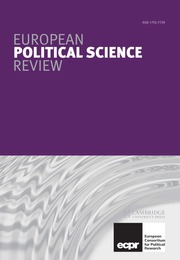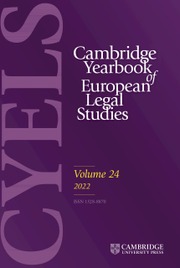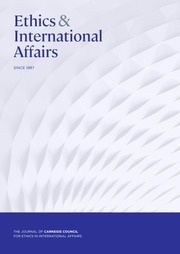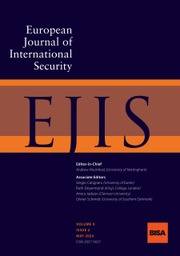The Procedural and Organisational Law of the European Court of Justice
An Incomplete Transformation
$110.00 (F)
Part of Cambridge Studies in European Law and Policy
- Author: Christoph Krenn, Max Planck Institute for Comparative Public Law and International Law, Heidelberg
- Date Published: September 2022
- availability: Available
- format: Hardback
- isbn: 9781009247948
$
110.00
(F)
Hardback
Other available formats:
eBook
Looking for an examination copy?
If you are interested in the title for your course we can consider offering an examination copy. To register your interest please contact [email protected] providing details of the course you are teaching.
-
How should judges of the European Court of Justice be selected, who should participate in the Court's proceedings and how should judgments be drafted? These questions have remained blind spots in the normative literature on the Court. This book aims to address them. It describes a vast, yet incomplete transformation: Originally, the Court was based on a classic international law model of court organisation and decision-making. Gradually, the concern for the effectiveness of EU law led to the reinvention of its procedural and organisational design. The role of the judge was reconceived as that of a neutral expert, an inner circle of participants emerged and the Court became more hierarchical. While these developments have enabled the Court to make EU law uniquely effective, they have also created problems from a democratic perspective. The book argues that it is time to democratise the Court and shows ways to do this.
Read more- Develops a normative theory of court organisation and decision-making for the European Court of Justice, combining the theoretical work of Christoph Möllers, Niklas Luhmann and Jürgen Habermas
- Tells the story of the Court of Justice's rise to power from 'inside' the Court, describing how a reinvention of its organisation, procedures and decision-making have enabled its success in crafting a pro-integrationist case law and making EU law uniquely effective
- Makes detailed proposals how to enhance the Court of Justice's democratic character, discussing among others the role of amici curiae, case assignment or the interactions between judges and Advocates General
Reviews & endorsements
‘Krenn’s book stands as a precious compass. Not only does it offer a valuable conceptual framework to make sense of the Court’s changing roles and functions in the EU polity, but is also outlines a clear way forward, fit for the challenges ahead.’ Paul Dermine, European Constitutional Law Review
Customer reviews
Not yet reviewed
Be the first to review
Review was not posted due to profanity
×Product details
- Date Published: September 2022
- format: Hardback
- isbn: 9781009247948
- length: 202 pages
- dimensions: 237 x 160 x 11 mm
- weight: 0.45kg
- availability: Available
Table of Contents
1. Introduction
2. What courts do: a normative theory of court decision-making
3. On the template of the ICJ: the Court's liberal roots
4. Luhmann in Luxembourg: the rise of the rule of law model
5. Completing the transformation: proposals for democratising the ECJ
6. Conclusion.
Sorry, this resource is locked
Please register or sign in to request access. If you are having problems accessing these resources please email [email protected]
Register Sign in» Proceed
You are now leaving the Cambridge University Press website. Your eBook purchase and download will be completed by our partner www.ebooks.com. Please see the permission section of the www.ebooks.com catalogue page for details of the print & copy limits on our eBooks.
Continue ×Are you sure you want to delete your account?
This cannot be undone.
Thank you for your feedback which will help us improve our service.
If you requested a response, we will make sure to get back to you shortly.
×
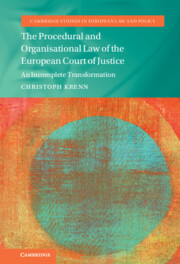
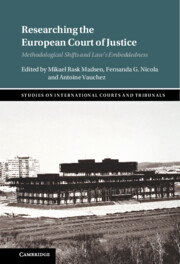
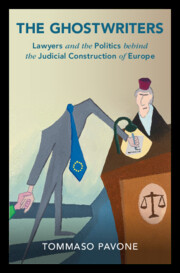
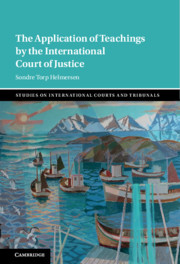
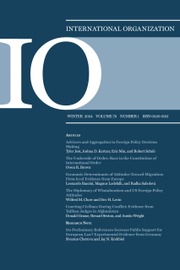
.jpg)
